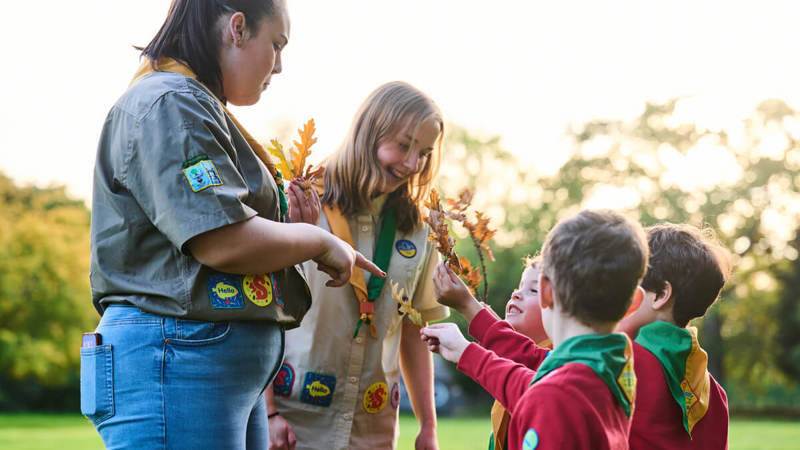-

Our Volunteer Culture
-

Trustee Boards
-

Scout Groups...
-

Scout Districts
-

Scout Counties
Our roles and structures
Image

Our volunteering roles need to be...
clear, manageable, and flexible!
We know that asking people to become leaders (or other specific roles), doesn’t suit everyone. People need to be able to volunteer in whichever way they can and want to do, focusing on the areas they have skills or interest in – and without having to take on the world.
A teams-based approach
Teams thrive when they share a purpose, share tasks, and support each other to make the most of their different skills, experiences and available time. The way we volunteer is structured around these key principles:
- everyone will volunteer as part of a flexible team structure
- each team will have a clear purpose, team description and set of team tasks
- We will describe our teams and roles in plain English to ensure they are easily understood by everyone
This helps make it easier for a more diverse range of people to contribute to Scouts in a way that reflects their skills, interests, and availability.
Working in teams that have a range of team tasks to complete together is one way we can make flexible volunteering normal, and available to everyone.
Image

There are two types of tasks listed here:
- Tasks for the whole team – All team members take part in these tasks and must have, or develop, the skills associated with these tasks
- Allocated tasks – The team leader ensures that one or more team members has the responsibility and skills for these tasks
Beyond that, it’s down to the team to decide how they organise themselves, based on their skills, interests, and availability.
Our new volunteering principles...
- We volunteer flexibly as part of a team with a shared purpose.
- Our teams and titles are easier to understand and more appealing to new volunteers.
- Teams agree how to share tasks between them and this can change over time
